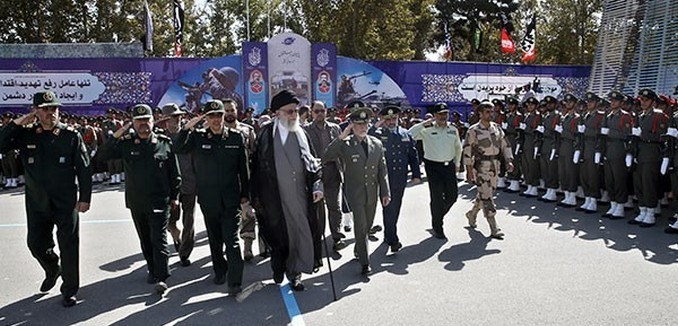Iran is seeking increased sanctions relief from the West by leveraging concerns that it will back out of last year’s nuclear deal, two experts from the Foundation for Defense of Democracies (FDD) wrote in an analysis for U.S. News and World Report on Wednesday.
Iranian President Hassan Rouhani’s speech at the United Nations General Assembly last week shows that Iran is seeking “not to ensure Western compliance with the deal, but to facilitate the lifting of those international sanctions still in force against it,” analysts Benham Ben Taleblu and Amir Toumaj wrote.
Rouhani charged “that the West was flouting its commitments under the Joint Comprehensive Plan of Action nuclear deal” by not lifting further sanctions on Iran, the analysts summarized. This demonstrated that despite the documented financial gains that Iran has achieved since the deal went into effect in January, the Iranian government is pushing a narrative that the deal isn’t succeeding due to “Western – and particularly American – malice.”
However, the sanctions that are still in place are not related to the nuclear issue; instead, they were imposed on on Iran due to its ongoing money-laundering and financing of terror groups. In fact, the analysts wrote, the West—and especially the United States—has been going beyond the what the agreement requires in order to encourage international business with Iran. “In January, the U.S. offered Tehran ‘secret exemptions’ to skirt certain deal restrictions even as Iran failed to abide by the deal’s implementation timeline, and in April reportedly purchased 32 tons of heavy water produced for Iran’s Arak reactor,” they recounted.
Iranian officials have claimed that they are preparing to fully restart their nuclear program should the deal fall apart due to inadequate sanctions relief. Atomic Energy Organization of Iran chief Ali Akbar Salehi announced in July that Iran was preparing to reverse its concession if the West violated the nuclear deal. A spokesman later clarified that Iran could reinstall all of its disabled centrifuges in just 45 days. “Tehran feels it can get even more merely by hinting it might walk away,” Ben Taleblu and Toumaj wrote.
While the deal officially allows the West to “snapback” nuclear sanctions if Iran fails to keep to its commitments, Iran “retains a separate snapback capability that can nullify both nuclear and non-nuclear sanctions: the threat of ramping up its nuclear infrastructure,” the researchers explained.
The goal in this maneuvering is to encourage the West to make additional financial concessions to Iran in order to boost the popularity of Rouhani, who will be up for reelection next year. “By putting Rouhani on the defensive, and by having a steady stream of officials decry supposed Western perfidy, [Supreme Leader Ayatollah Ali] Khamenei is betting that the West will come to his aid,” Ben Tablelu and Toumaj observed.
In a Los Angeles Times op-ed published earlier this week, former Israeli defense minister Moshe Ya’alon called on the West to be stricter in its enforcement of the nuclear deal. He added that world leaders should not hesitate to impose further non-nuclear sanctions, which would not violate the nuclear agreement, to ensure that Iran continues to follow the terms of the deal.
[Photo: Fars News ]




